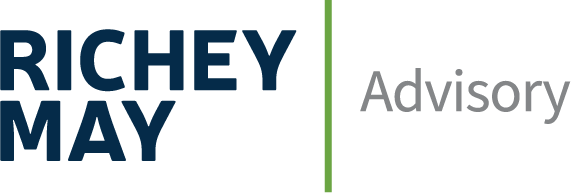Business Insights
Debunking Common Misconceptions about SOC Reports
Articles by: Richey May, Jul 28, 2023
In today’s technology-driven world, businesses increasingly rely on third-party service providers to handle critical functions and processes. To ensure the security and confidentiality of sensitive data, many organizations seek assurance from their service providers through SOC 1 and SOC 2 reports. These reports are issued by certified public accountants (CPAs) and provide valuable independent assessments of the service provider’s control environment.
However, several misconceptions surrounding these reports often lead to misunderstandings and misinterpretations. This blog post will debunk some of the most common misconceptions about SOC 1 and SOC 2 reports.
Misconception 1: SOC 1 and SOC 2 Reports Are the Same
One of the most prevalent misconceptions is that SOC 1 and SOC 2 reports are interchangeable or identical. In reality, these two reports serve different purposes and address distinct concerns.
SOC 1 Report: Formerly known as SAS 70 (Statement on Auditing Standards No. 70), SOC 1 reports focus on a service organization’s controls relevant to its clients’ internal control over financial reporting. These reports are essential for organizations that outsource financial functions, such as payroll processing or financial statement preparation.
SOC reports are typically divided into two types: Type 1 reports, which provide a snapshot of the service organization’s controls at a point in time, and Type 2 reports, which provide a more in-depth assessment of the service organization’s controls over a period of time.
SOC 2 Report: In contrast, SOC 2 reports evaluate a service organization’s controls related to the security, availability, processing integrity, confidentiality, and privacy (if applicable) of the information that it processes on behalf of its customers. These reports are valuable for companies that entrust their data and IT functions to third-party service providers.
Misconception 2: SOC Reports Guarantee Security
While SOC 1 and SOC 2 reports are valuable tools for assessing a service provider’s controls, they do not provide an absolute guarantee of security or infallibility. The reports offer a snapshot of the service provider’s control environment at a specific point in time. The effectiveness of these controls depends on various factors, including the service provider’s commitment to maintain and update them regularly.
Organizations must understand that SOC reports are just one part of the due diligence process. Enterprises should still conduct their own independent risk assessments, contractually define security expectations, and monitor the service provider’s ongoing performance.
Misconception 3: SOC Reports Are Only Relevant for Technology Companies
Another misconception is that SOC reports are only applicable to technology-oriented service providers. While it is true that SOC 2 reports are more commonly associated with technology companies, SOC 1 reports are relevant across various industries. Any organization that provides outsourced services impacting its clients’ financial reporting could benefit from a SOC 1 report.
Moreover, SOC 2 reports are becoming increasingly valuable for any service organization entrusted with sensitive data, regardless of the industry. As data breaches and cybersecurity incidents become more prevalent, customers are demanding more transparency and assurance from their service providers regarding their data protection.
Misconception 4: SOC Reports Eliminate the Need for Audits
A common misunderstanding is that obtaining a SOC report means the service provider no longer requires an audit. This is not the case. SOC reports are specifically designed to provide assurance over the controls related to financial reporting or data security, but they do not cover all aspects of an audit.
For instance, a SOC 1 report may assess controls relevant to financial reporting but does not delve into areas like tax compliance or fraud prevention. Similarly, a SOC 2 report may focus on information security, but it might not address financial controls or adherence to industry-specific regulations.
Misconception 5: SOC Attestation = Certification
Lastly, obtaining a SOC 1 or SOC 2 report is not a certification. An attestation is a written statement that confirms the accuracy or authenticity of an assertion. Attestations are obtained through activities such as SOC audits, compliance assessments, or internal control evaluations. An attestation assures various stakeholders by signing an opinion over the accuracy, completeness, or compliance matter being attested to.
An independent governing body provides certification through a documented assurance or certificate that the specific product, service, or system meets specific requirements.
A SOC attestation is not a certification. The SOC auditor will issue an opinion on whether the company’s internal controls were suitably designed and/or operating effectively to meet the applicable criteria.
Conclusion
SOC 1 and SOC 2 reports are vital in providing assurance and transparency to organizations that rely on third-party service providers. By understanding and dispelling common misconceptions about these reports, businesses can make more informed decisions when choosing and managing their service providers. However, it’s essential to remember that SOC reports are just one component of a comprehensive risk management strategy, and organizations must continue to perform due diligence and maintain open communication with their service providers to ensure ongoing security and compliance.
Richey May’s seasoned professionals have years of experience and expertise to help guide you through this complex process. Reach out to us at info@richeymay.com to get started.


